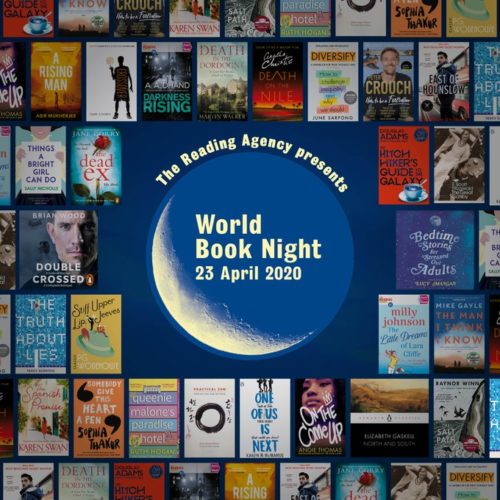The 23rd of April is quite a big day for literary lovers across the world – it’s the UNESCO International Day of the Book, it’s (probably!) William Shakespeare’s birthday today, and it is also World Book Night – a brilliant initiative organised by the Reading Agency.
Of course, this year’s World Book Night is probably more poignant than most. Whilst we are dealing with COVID-19, we are turning to arts and books to help us get through it. I know I’ve read more recently, so I look forward to pausing and reflecting on the importance of reading, and the organisations that make it possible for many to find a love of books – public libraries.

The way public libraries have responded to the COVID-19 pandemic is remarkable. I’ve been in regular contact with the sector and have heard about the way public libraries have adapted to meet their users’ needs in these unprecedented times.
Supporting Communities
Library services reacted quickly to closure, from waiving fines and extending loans through to developing innovative digital ways to deliver popular services like Rhyme Time. With the doors closed, libraries are repurposing stock budgets to meet the surge in demand for e-books and Arts Council England has made £150,000 available to supplement this existing funding.
Libraries Connected has done a great job of taking some much loved services online via #LibrariesFromHome. Families have been able to continue to participate in events like Rhyme Time and storytimes, book club and literary festivals organised by any library in the country – all the whilst staying at home and keeping themselves and others safe.
#LibrariesFromHome is also one of the resources that can be used by parents or carers homeschooling primary age children, and is on the Hungry Little Minds campaign website, which provides fun activities for children to help stimulate speech and language development. CILIP have also launched the National Shelf Service, to share the expertise of librarians through daily book recommendations.
We’ve also seen how public libraries have been combating loneliness – more important than ever in the days of social distancing. As well as making sure libraries are still accessible online, many are still contacting vulnerable users by phone so that they hear a friendly voice. Which is exactly why libraries are a key part of the new Tackling Loneliness Network, a network of charities, businesses and public figures, set up by the Culture Secretary to connect people at risk of isolation.
Get involved
Books provide support and solace in difficult times and can be a much-needed distraction from the pressures of everyday life – so why not join in with some of the digital activities and author broadcasts available through library services in celebration of World Book Night? Or you can take part in the #ReadingHour to get the nation reading this evening – I know I will be.
Of course, all of the activity happening now would be impossible without the imagination, skills and dedication of people working in public libraries across the country. And the contribution that library staff can make is also being recognised in other ways. Their skills mean they are in huge demand for redeployment by councils across a wide range of other public services that are under pressure because of COVID-19.
Once we have beaten coronavirus, public libraries will have an important role to play in rebuilding communities – I’ll be working closely with the sector to understand when and how that will be possible.
I want to end this blog by expressing my appreciation to everyone in the library sector – whether focussed on core library work, or helping in wider ways – for the inspiring way you have risen to the current challenges and gone the extra mile to support your communities. Thank you!
 Department for Culture, Media and Sport
Department for Culture, Media and Sport
